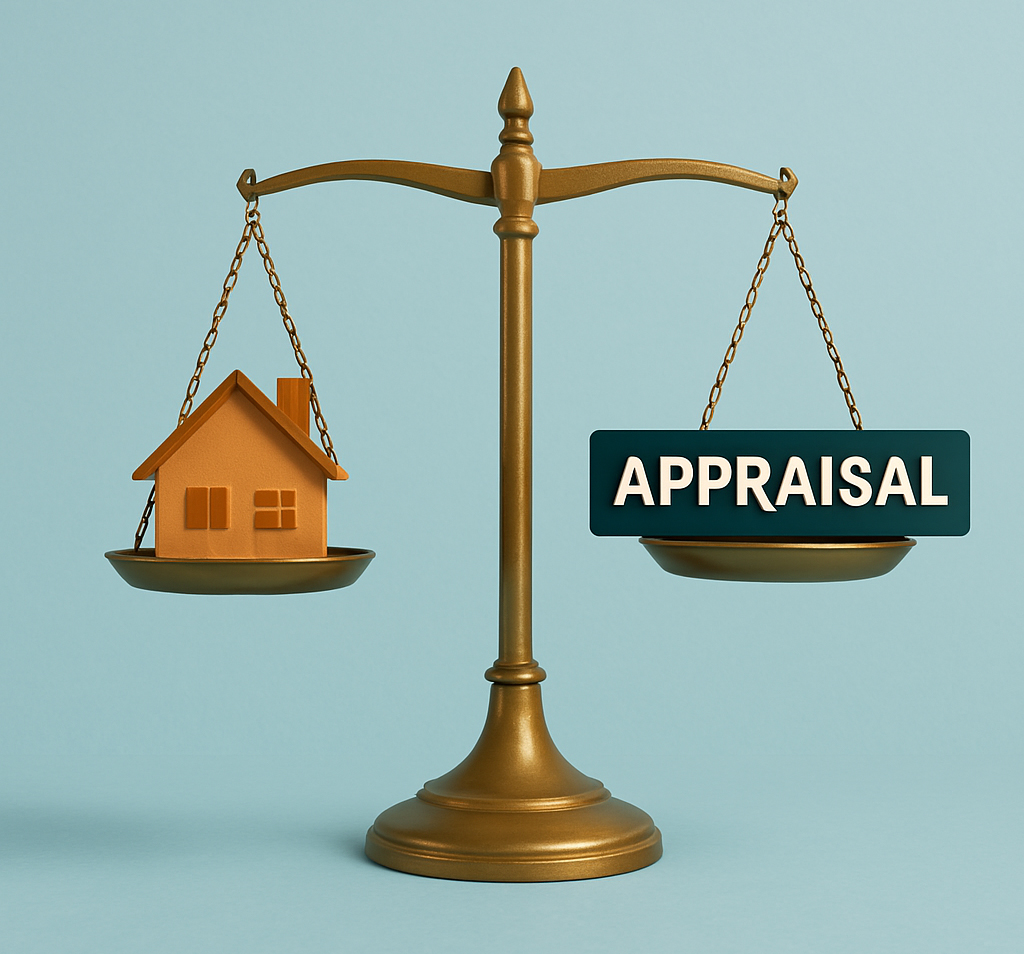Brought to you by Scott P. Rogers, Funkhouser Real Estate Group, 540-578-0102, scott@HarrisonburgHousingToday.com
Brought to you by Scott P. Rogers, Funkhouser Real Estate Group, 540-578-0102, scott@HarrisonburgHousingToday.com
Monday, April 14, 2025

A home seller is thrilled - an offer is in hand, negotiations are complete, and the contract is signed at $500,000. Maybe it was even a multiple-offer scenario. Everything seems to be moving along nicely...
Until the appraisal comes in at $475,000.
Now what?
Well, it depends - mostly on the terms of the contract and how the offer was negotiated in the first place.
If the contract is contingent on the property appraising at or above the purchase price:
The buyer will likely come back to the seller and ask:
"Would you be willing to reduce the purchase price to match the appraised value of $475,000?"
If the contract isn't contingent on the appraisal, but the buyer's financing can't move forward due to the low appraisal:
Then the buyer may not be able to close on the purchase - even if they want to - because their loan is now in jeopardy.
If the contract isn't contingent on the appraisal, and the buyer's loan is unaffected by the low value:
Then things will proceed as planned, with the buyer still purchasing the home for $500,000, even though it only appraised for $475,000.
And in a competitive situation when there were multiple offers?
The buyer might be completely fine with paying $25K over the appraised value if it means they get the house.
But here's the thing... these scenarios are all being considered after the appraisal comes in low. Ideally, these questions should be discussed before an offer is made and accepted.
For Buyers:
Are you willing to pay more than the appraised value if needed?
Does your loan structure allow for that possibility?
For Sellers:
Will the presence or absence of an appraisal contingency impact which offer you accept?
If your contract is contingent on the appraisal, keep in mind that your sale price isn't set in stone until that appraisal is in.
Appraisals are a routine part of most transactions - but when they come in low, they can change everything. Buyers and sellers alike are wise to understand how this piece of the puzzle fits into their deal before it's a surprise.
Until the appraisal comes in at $475,000.
Now what?
Well, it depends - mostly on the terms of the contract and how the offer was negotiated in the first place.
If the contract is contingent on the property appraising at or above the purchase price:
The buyer will likely come back to the seller and ask:
"Would you be willing to reduce the purchase price to match the appraised value of $475,000?"
If the contract isn't contingent on the appraisal, but the buyer's financing can't move forward due to the low appraisal:
Then the buyer may not be able to close on the purchase - even if they want to - because their loan is now in jeopardy.
If the contract isn't contingent on the appraisal, and the buyer's loan is unaffected by the low value:
Then things will proceed as planned, with the buyer still purchasing the home for $500,000, even though it only appraised for $475,000.
And in a competitive situation when there were multiple offers?
The buyer might be completely fine with paying $25K over the appraised value if it means they get the house.
But here's the thing... these scenarios are all being considered after the appraisal comes in low. Ideally, these questions should be discussed before an offer is made and accepted.
For Buyers:
Are you willing to pay more than the appraised value if needed?
Does your loan structure allow for that possibility?
For Sellers:
Will the presence or absence of an appraisal contingency impact which offer you accept?
If your contract is contingent on the appraisal, keep in mind that your sale price isn't set in stone until that appraisal is in.
Appraisals are a routine part of most transactions - but when they come in low, they can change everything. Buyers and sellers alike are wise to understand how this piece of the puzzle fits into their deal before it's a surprise.
